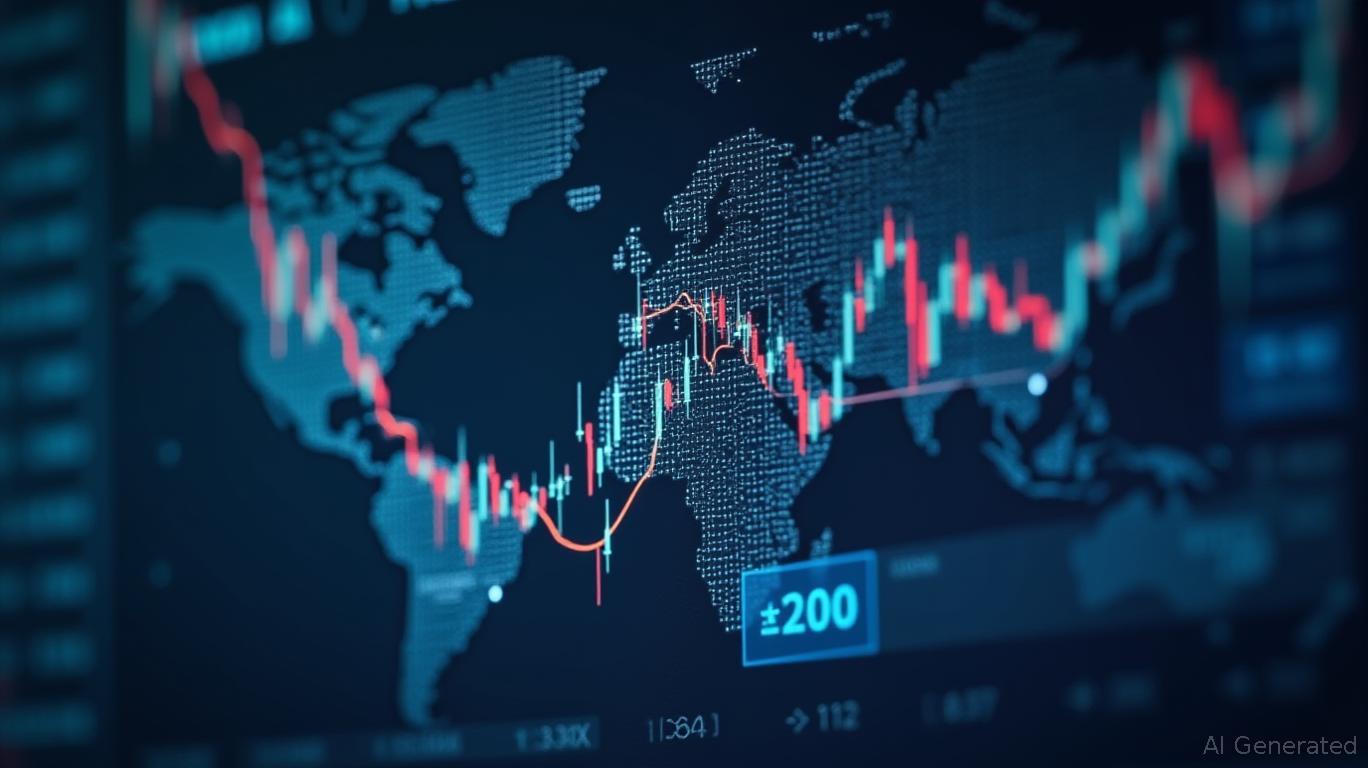Bitcoin News Update: Separating Fact from Fiction: Trump's Tariff Policies Fuel Unstable Cycles in AI and Cryptocurrency Markets
President Donald Trump's approach to tariffs has acted as a double-edged sword for financial markets, sparking dramatic fluctuations in both cryptocurrency and artificial intelligence (AI) stocks that resemble classic pump-and-dump scenarios. Experts caution that abrupt changes in trade policy—especially those targeting China—are inflating financial bubbles driven more by market sentiment than by underlying fundamentals, with collaborations in the AI industry amplifying these effects. The trend is clear: markets react with fear to new announcements, recover when the rhetoric eases, and frequently adjust again as the true impact becomes apparent, according to
One notable incident occurred in October, when Trump's proposal of a 100% tariff on Chinese goods led to a rapid $19 billion sell-off in the crypto sector, pushing

AI stocks are experiencing similar patterns. Strategic agreements among major tech firms have led to brief surges. For instance, OpenAI’s $100 million warrant for AMD shares caused the chipmaker’s stock to soar 38% in a day, though analysts soon questioned the deal’s immediate financial benefits. Nvidia’s $5 billion partnership with Intel resulted in a 23% jump for Intel’s stock, but many pointed out the long-term nature of the collaboration, a trend also noted by Yahoo Finance. Qualcomm’s recent move into the AI server space with its AI200 and AI250 chips has further fueled competition, with its stock rising 19% after unveiling its rack-scale AI inference solutions, as reported by
Despite the excitement, substance often lags behind. Intel’s 23% stock rally following a $5 billion investment from
The frenzy is further fueled by rumors of insider trading. A crypto trader accused of shorting Bitcoin before Trump’s tariff announcement has reportedly profited again, this time by betting on a pardon for Binance’s Changpeng “CZ” Zhao. Blockchain records indicate the same wallet made $56,522 on Polymarket, prompting concerns about access to privileged information, as reported by
With U.S.-China trade talks approaching, market uncertainty remains high. Trump’s recent shift in tone—assuring investors “Don’t worry about China”—followed by another tariff threat in early October, has created a rollercoaster effect, as described by
Qualcomm’s expansion into AI servers and Intel’s foundry strategy underscore the fierce competition in the sector. Yet, as with cryptocurrencies, the gap between market enthusiasm and actual results may continue to widen. “The trades are public, but the trader’s identity isn’t,” one analyst remarked, capturing the lack of transparency that characterizes both the AI and crypto markets, as noted by FinanceFeeds.